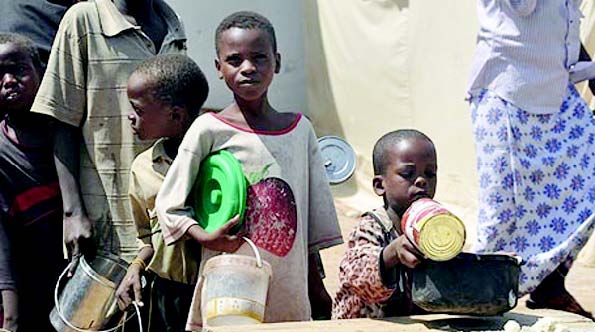2017 health budget promises more child deaths

Unless the proposed 2017 health budget is amended, millions of Nigerian children will end up dead this year from severe malnutrition and vaccine preventable diseases, experts have proclaimed.
This is despite president Buhari’s avowed promise that his government will ensure the provision of adequate healthcare delivery to Nigerians.
It would be recalled that during the inauguration of the Kuchigoro Primary Health Centre (PHC) in Abuja, that the President reaffirmed his campaign promise, to end needless maternal, child deaths and provide universal healthcare to Nigerians.
But the 2017 appropriated health budget cast doubt to the sincerity of government toward the actualization of this promise. The N304bn budgeted for Health this year is only 4.17 percent of the national budget, an insignificant improvement on the 2016 budget of 4.13 percent. Considering the depreciation of Naira to Dollar, experts surmised that 2017 health budget is cumulatively lower than that of 2016.
Health advocates under the platform of The Partnership for Advocacy in Child and Family Health (PACFaH), said these figures are even more inadequate considering the public health challenges facing the country in areas of child- malnutrition, routine immunization, maternal and infant mortality, family health, among others.
Up till now, the country’s maternal and under-five mortality remains one of the worst in the world, with 111 women dying every day from pregnancy related causes, as well as 2,300 under-five children, going by the National Demographic Health Survey (NDHS, 2013).
This is the more reason why more funds should be injected into health the group noted. “The 2017 proposed health budget is just 4.17 percent of the entire federal budget, a figure still very far- 73 percent gap from the 15 percent benchmark. It is quite disheartening considering that other African countries with very low influx of revenue such as Ethiopia and South Africa budget as much as 12 to 15 percent,” they said.
From their analysis, the proposed 4.17 per cent will drop further to 4.3 per cent when you consider the combined health budgets of the federal and state governments.
Analysing the 2017 health budget, a public health consultant, Dr. John Onyeokoro noted that the National Health Act (NHA) and the intervention fund of about N46 billion was not captured in the budget.
The Act provides that one percent of the Consolidated Revenue of the Federation should be set aside for health funding. Up till now, the NHA is yet to be implemented, hence the burden of paying for healthcare falls disproportionately on households.
If you consider other factors such as the refunds to Global Alliance for Vaccine Initiative (GAVI) and Global Fund, totaling about N6 billion, the actually value of the health budget will further diminish, Onyeokoro said.
A 2013 report by the Africa Health Budget Network indicates that 69 percent of all health expenditure in the country was spent by households without insurance.
The project director of PSN-PACFaH, Remi Adeseun said the high exchange rate has a great impact on health.
“This is because most of our health services are reliant on importation. With official exchange rate now N305/US1, compared to last year’s N197/US1, the proposed 2017 health budget ($0.997million) is less than last year ($1.269 million), by 21 percent”, he said.
Read more at https://guardian.ng/features/2017-health-budget-promises-more-child-deaths/












